Ukrainian polar explorers showcase captivating penguin photos: Each one unique
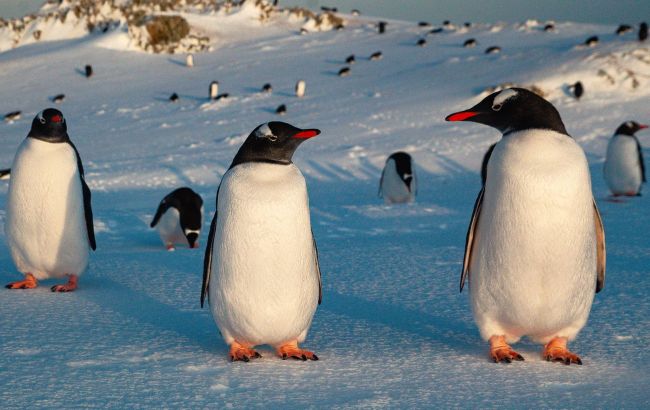 Ukrainian polar explorers show new photos of penguins (photo: facebook.com/AntarcticCenter)
Ukrainian polar explorers show new photos of penguins (photo: facebook.com/AntarcticCenter)
Today, April 25, is World Penguin Day. The polar explorers of the Akademik Vernadsky Research Base reveal how many penguins live in their area and what makes them unique on the official account of the National Antarctic Research Center.
Species
There are currently 18 species of penguins on the planet, 5 of which are found in the Antarctic, and 3 nest directly in the area of the Vernadsky Research Center.
All species living in the vicinity of the Ukrainian station belong to the same genus Pygoscelis:
- Pygoscelis papua - sub-Arctic penguin
- Pygoscelis antarcticus - Antarctic penguin
- Pygoscelis adeliae - Adelie penguin
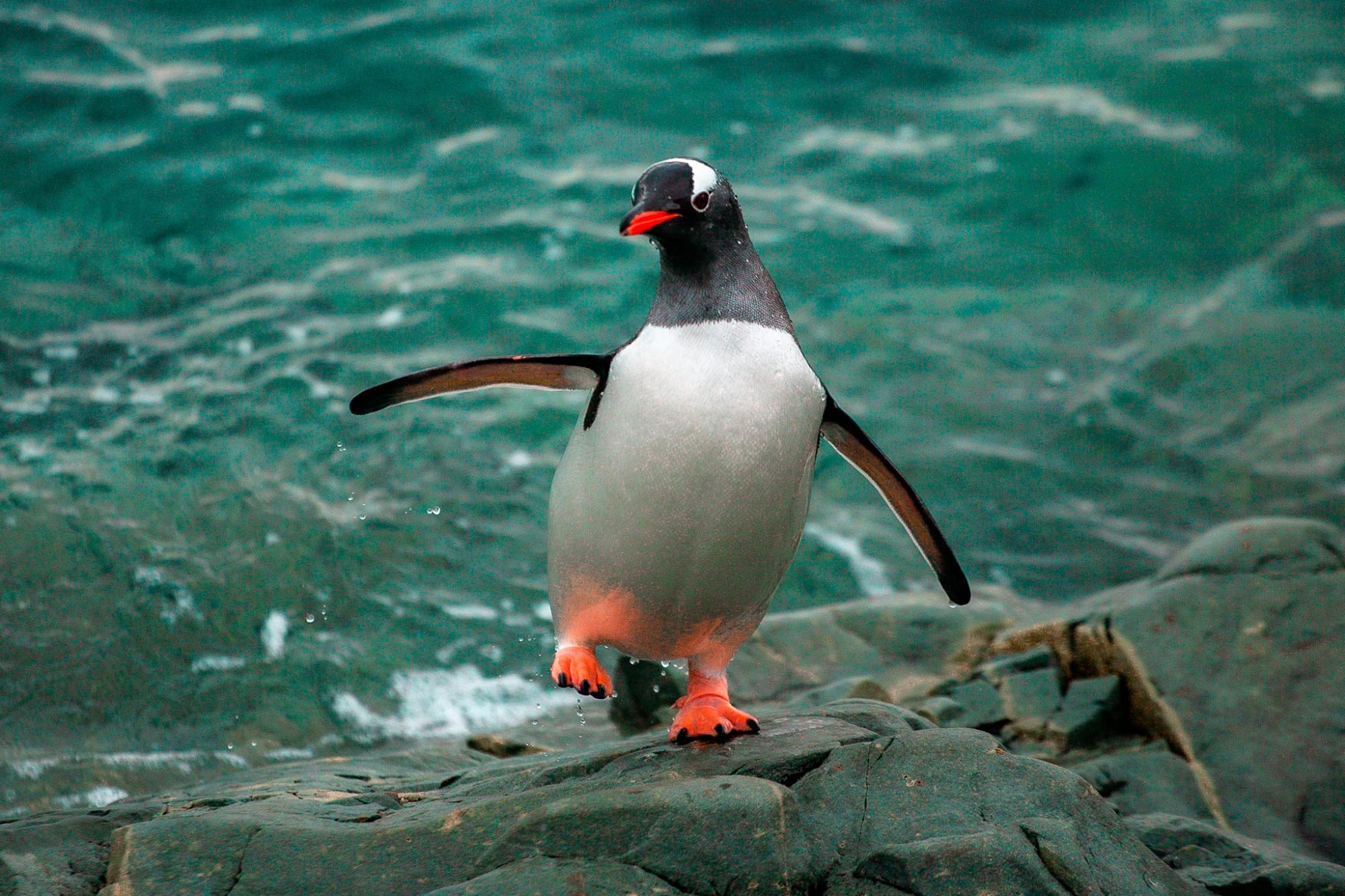 Subantarctic penguin (photo: facebook.com/AntarcticCenter)
Subantarctic penguin (photo: facebook.com/AntarcticCenter)
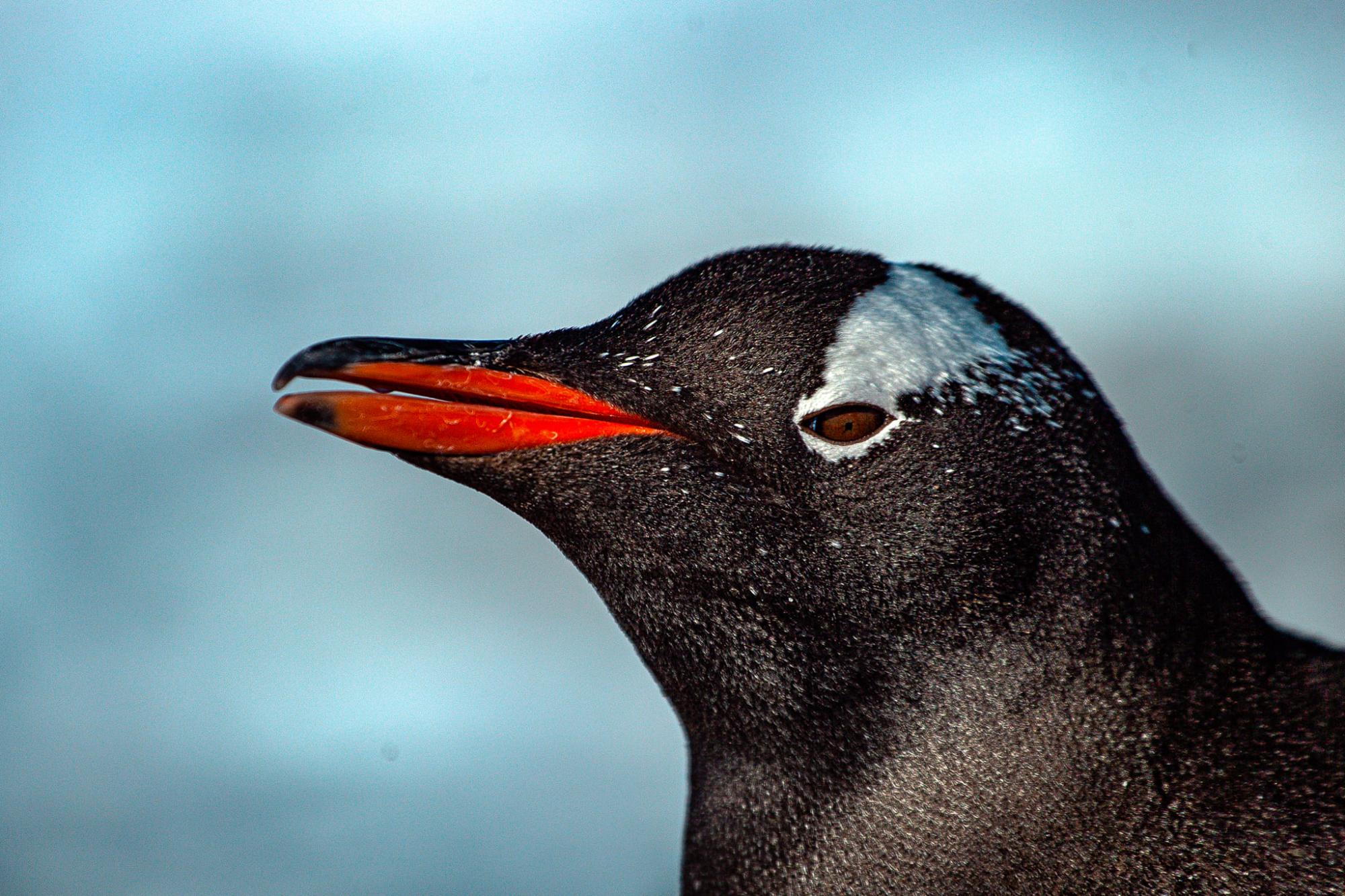 Subantarctic penguin (photo: facebook.com/AntarcticCenter)
Subantarctic penguin (photo: facebook.com/AntarcticCenter)
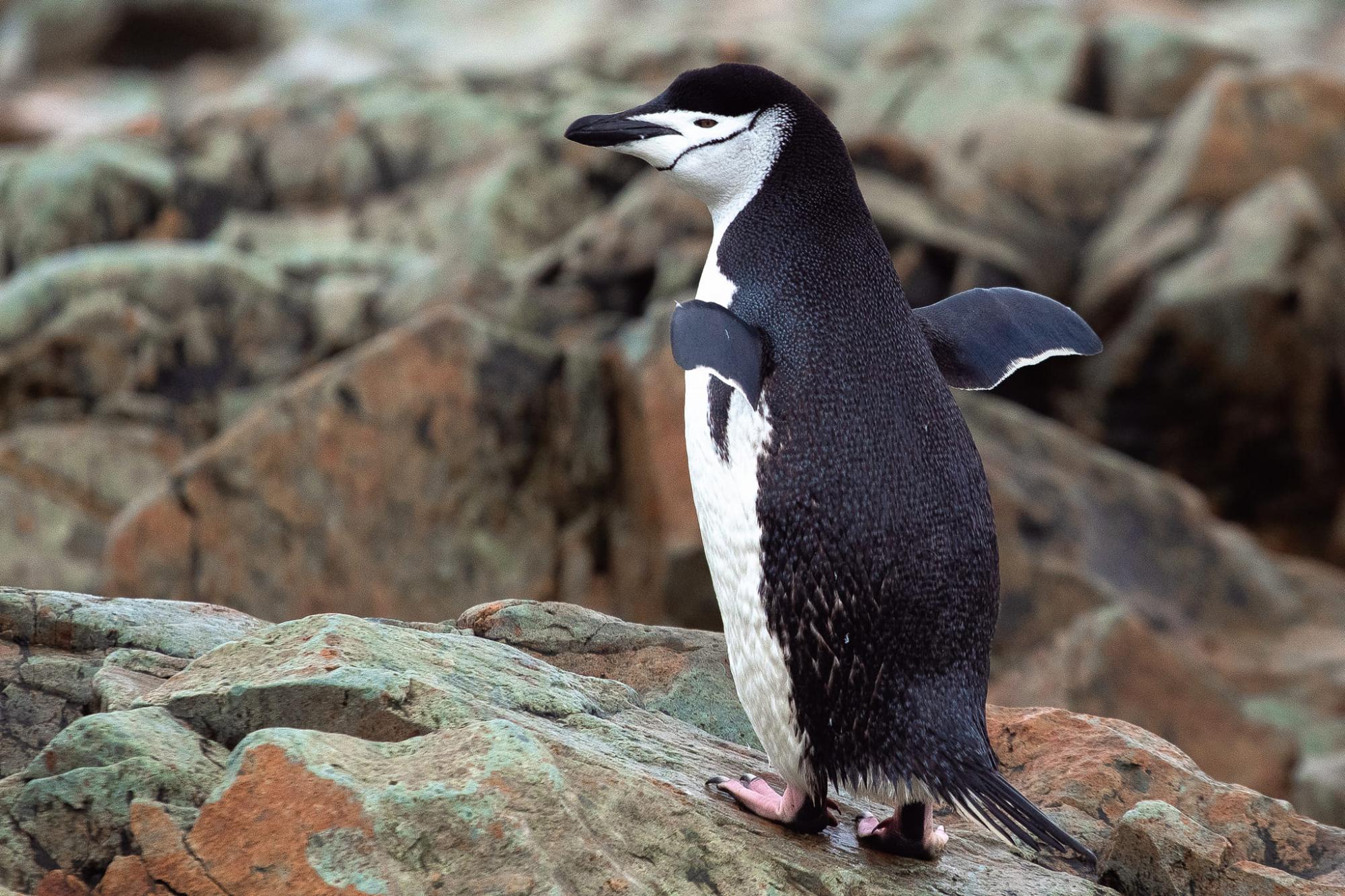 Antarctic penguin (photo: facebook.com/AntarcticCenter)
Antarctic penguin (photo: facebook.com/AntarcticCenter)
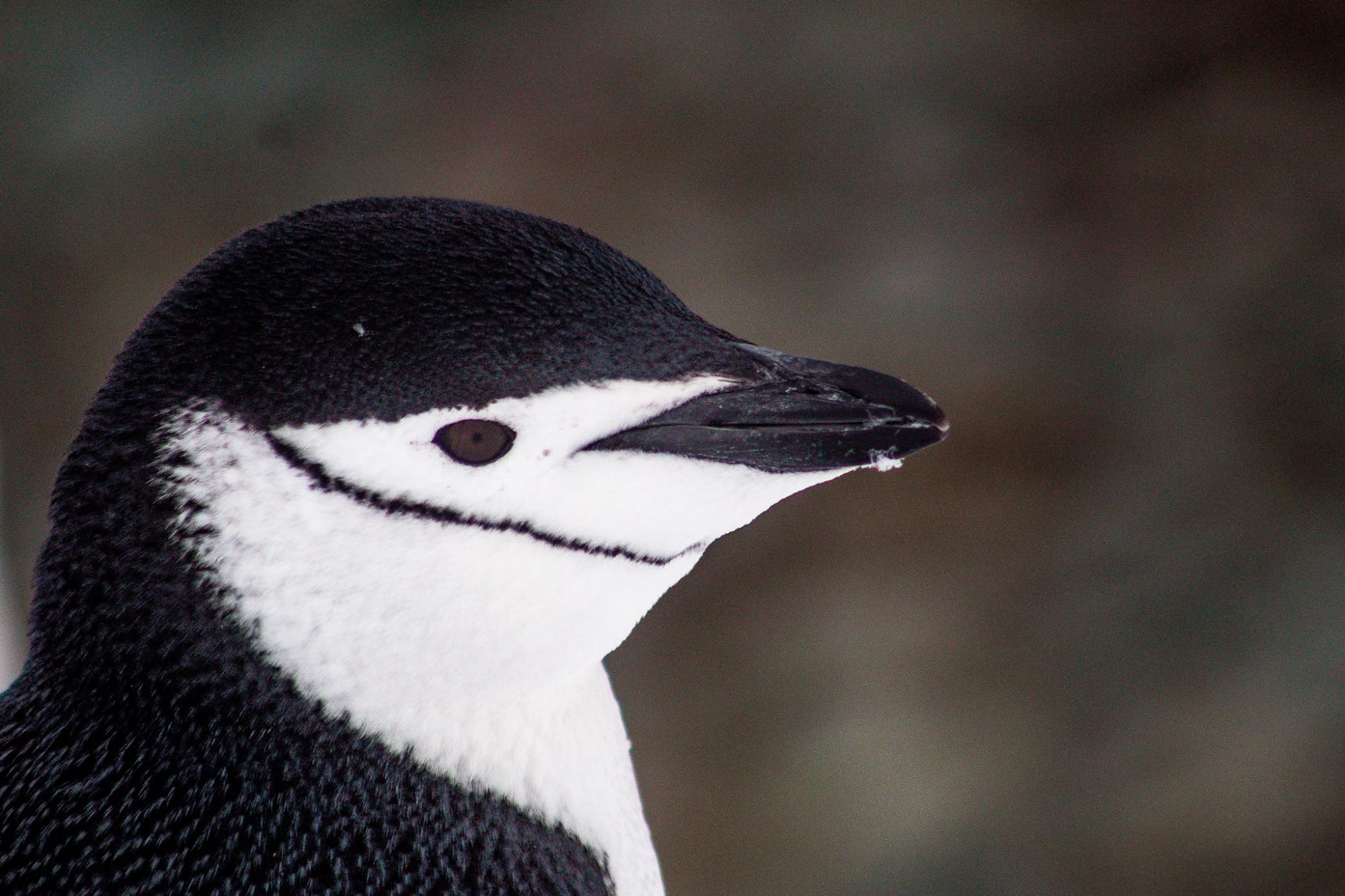 Antarctic penguin (photo: facebook.com/AntarcticCenter)
Antarctic penguin (photo: facebook.com/AntarcticCenter)
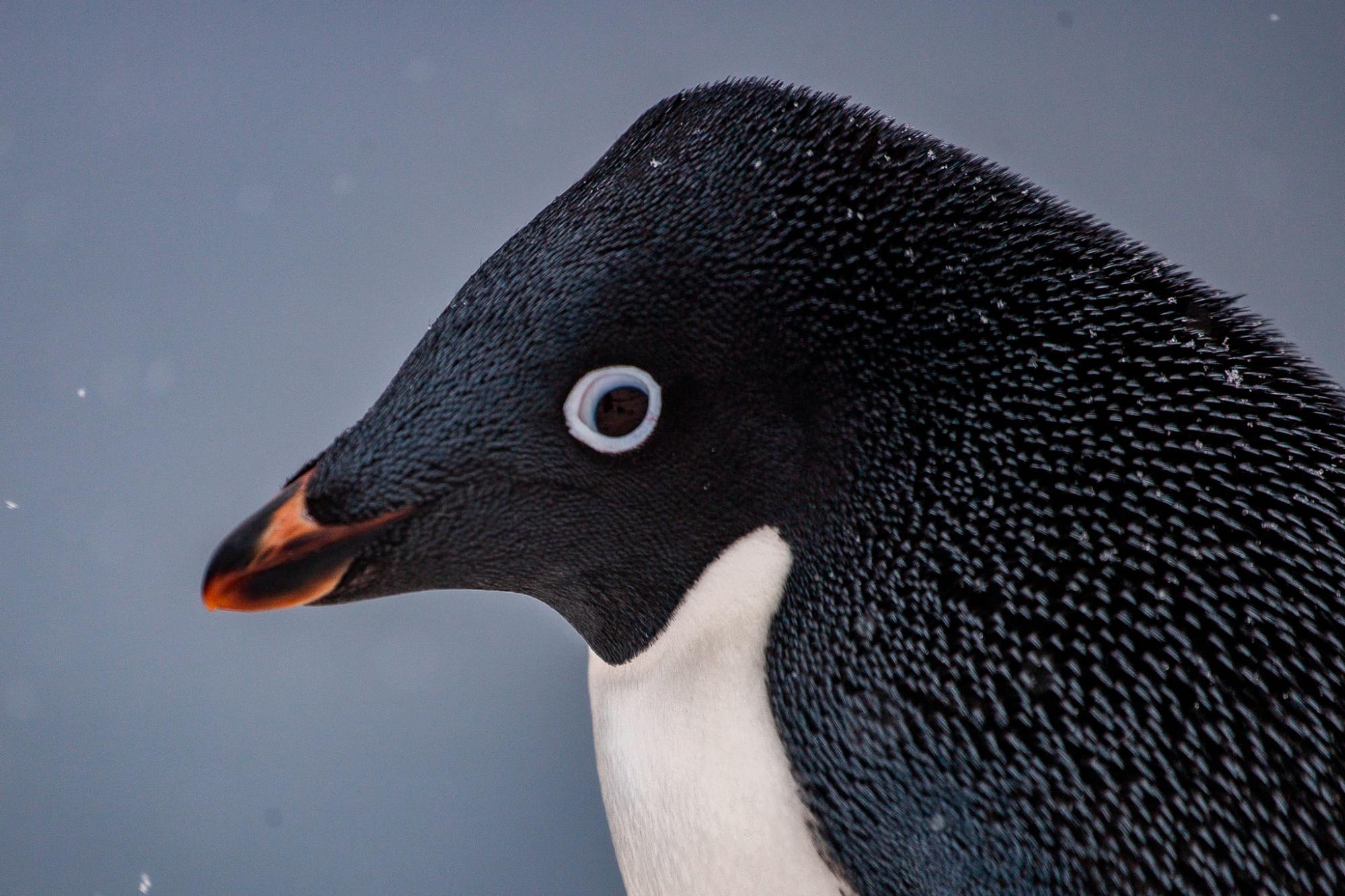 Adélie penguin (photo: facebook.com/AntarcticCenter)
Adélie penguin (photo: facebook.com/AntarcticCenter)
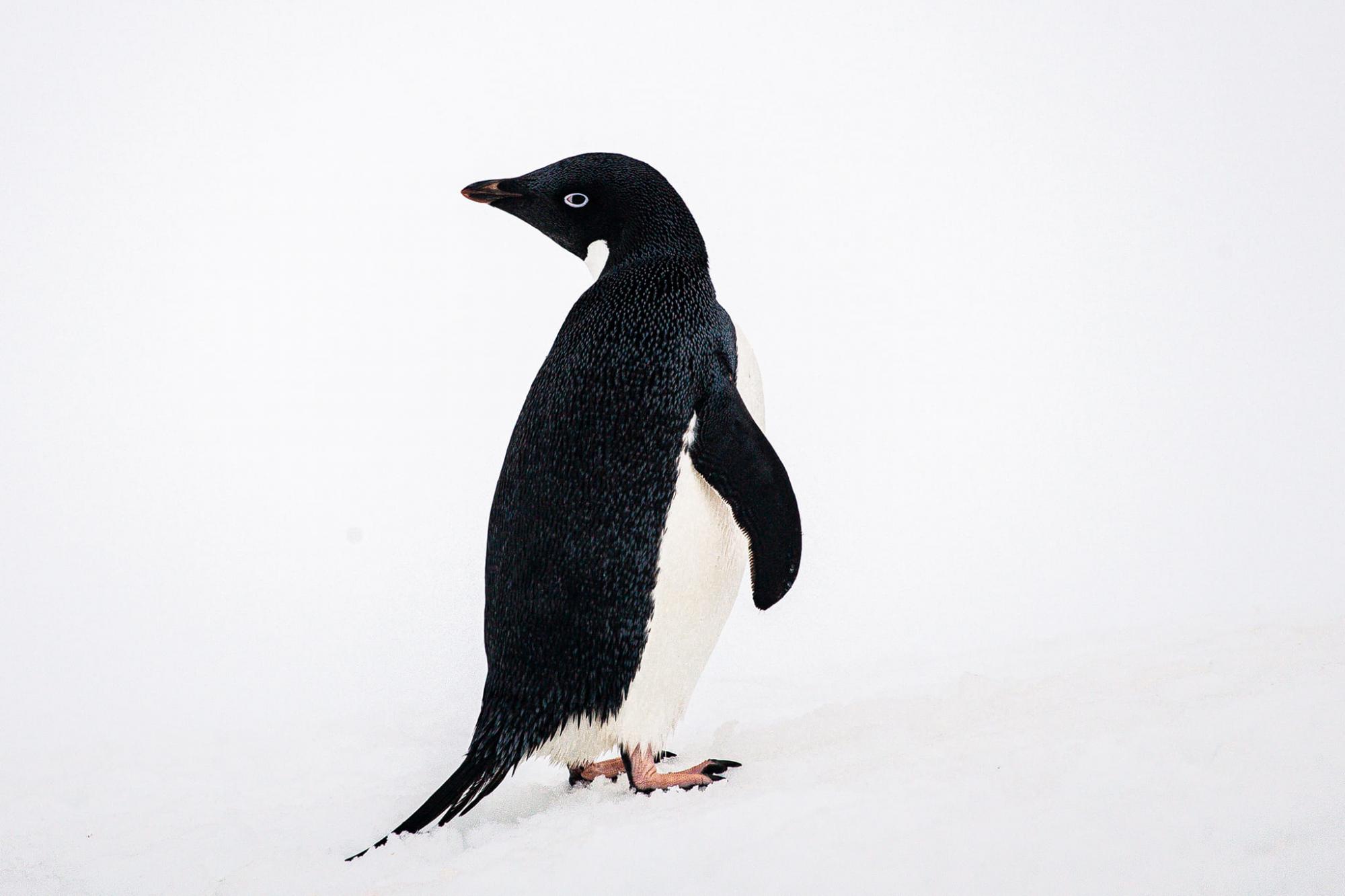 Adélie penguin (photo: facebook.com/AntarcticCenter)
Adélie penguin (photo: facebook.com/AntarcticCenter)
First of all, representatives of all three species begin the mating season in the Antarctic spring and build nests of stones. They usually lay 2 eggs, very rarely 1 or 3. Chicks are born in about a month.
In all species, both partners are responsible for parenthood: they take turns incubating the eggs and then protecting and feeding the chicks.
They also have the same enemies - sea leopards and skuas.
How they differ
These penguins differ primarily in their appearance.
The largest and brightest are sub-Antarctic penguins. They are up to 81 cm tall, have a red beak, and white spots above the eyes, and look like they are wearing a tailcoat.
Antarctic penguins are slightly smaller, up to 77 cm tall. Their highlight is a thin black stripe crossing the white chin.
Adelie penguins are the smallest of the entire genus, growing up to 75 cm in height. They have a completely black head and white-blue eyes.
The polar explorers noted that it is rare to see these three species in the vicinity of the Akademik Vernadsky station. And so far, biologists have recorded that they all nest together every year and successfully raise chicks only on But Island.
In addition, sub-Antarctic penguins are warmth-loving, while other species prefer cold conditions Adélie penguins nest on the coast of the entire continent, while other Pygoscelis are tied to islands or peninsulas.
“On our Galindez Island this season, there was a record number of sub-Antarctic penguins - up to 7 thousand. At the same time, only 2 pairs of Adélie penguins nested, and no Antarctic penguin nests were found at all,” the report says.
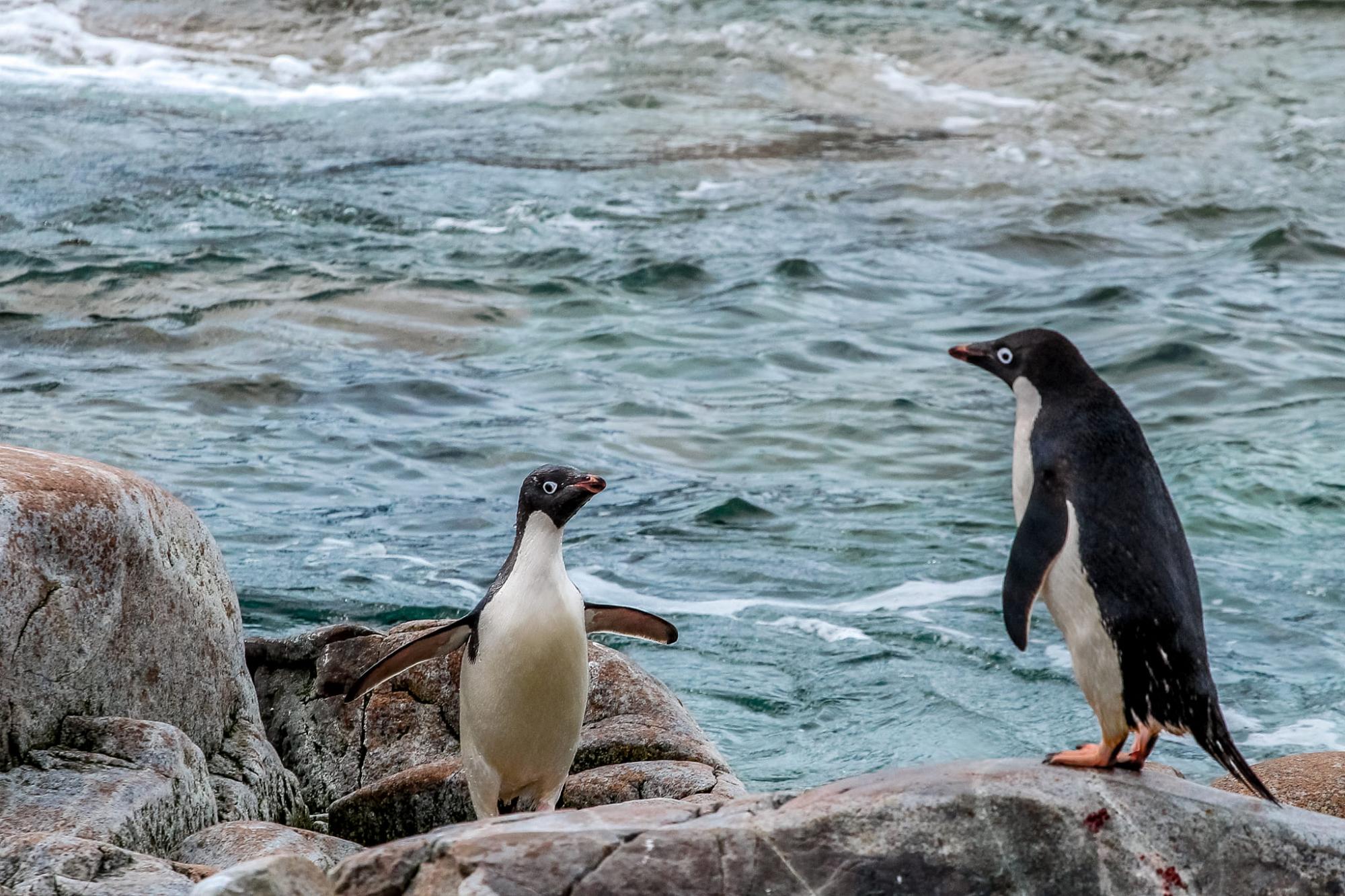 How penguins live in the Antarctic (photo: facebook.com/AntarcticCenter)
How penguins live in the Antarctic (photo: facebook.com/AntarcticCenter)
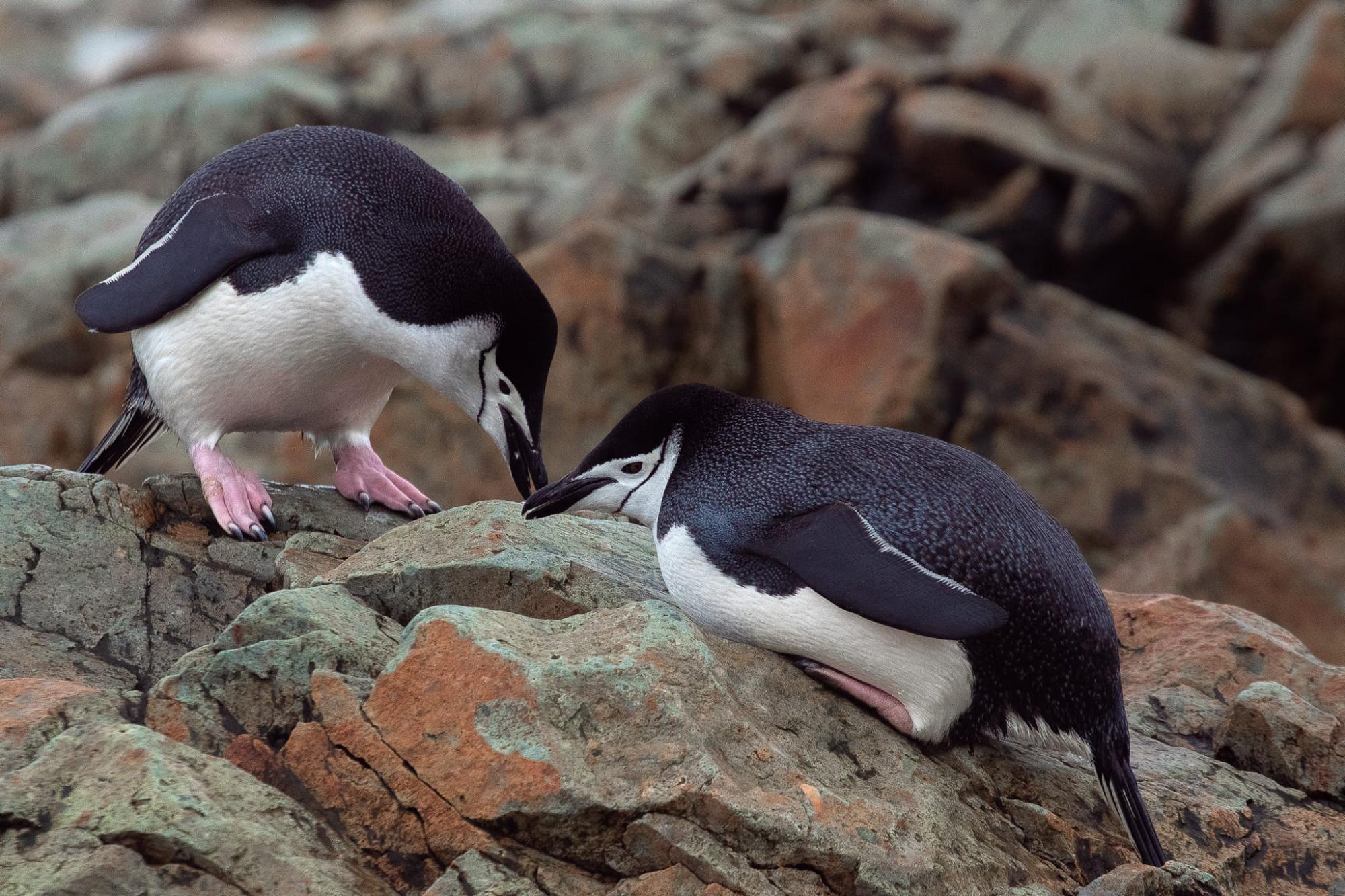 How penguins live in the Antarctic (photo: facebook.com/AntarcticCenter)
How penguins live in the Antarctic (photo: facebook.com/AntarcticCenter)

